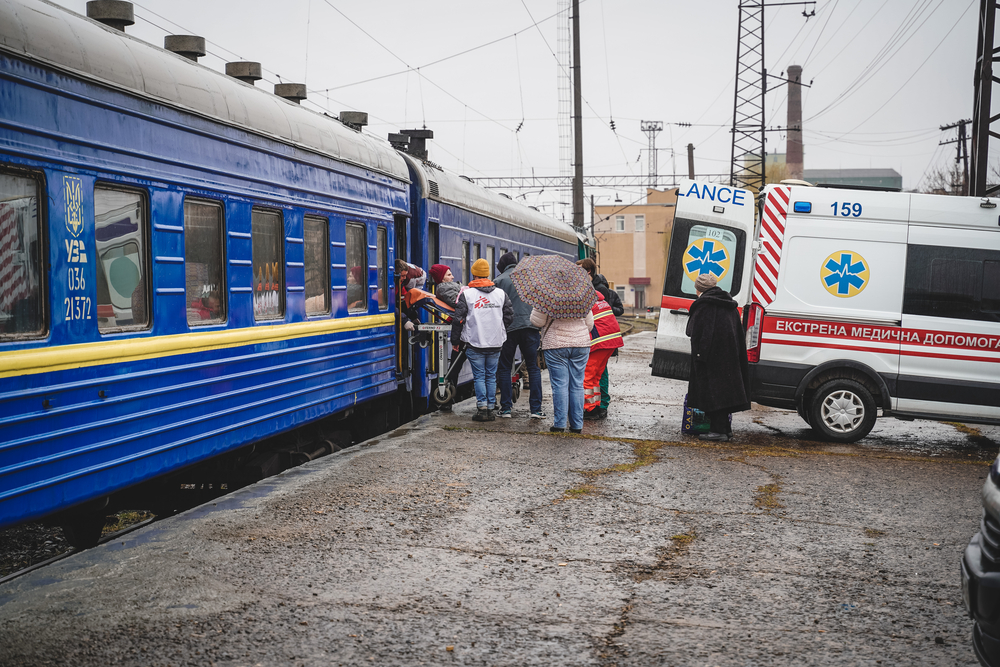Access to health care has been difficult for people living along the contact line of the conflict in eastern Ukraine since fighting intensified in the region in 2014.
Prior to the escalation of war across Ukraine in February 2022, MSF ran a range of activities, including programs for tuberculosis (TB) and HIV care. We started new projects in Donetsk and Luhansk, while continuing to support the national COVID-19 response. Now we have had to halt normal activities and are carrying out an emergency response.
How we're helping in Ukraine
As of November 15, 2022, there are approximately 116 international MSF staff and 685 Ukrainian staff working across Ukraine, with more joining the team every day. They work as medical staff (surgeons, doctors, nurses); psychologists; logistics and administration; and management. We currently have teams based in Apostolove, Dnipro, Ivano-Frankivsk, Kharkiv, Kyiv, Lyman, Lviv, Mykolaiv, Odesa, Poltava, Pokrovsk, Kochubeivka, Kostiantynivka, Kryvyi Rih, Uzhhorod, Kropyvnytskyi, Vinnytsia, Zaporizhzhia and Zhytomyr.
Since February 24, MSF has brought more than 800 metric tons of medical and relief supplies into Ukraine to support hospitals, health centers, and displaced people.
 Conflict and war
Conflict and war

